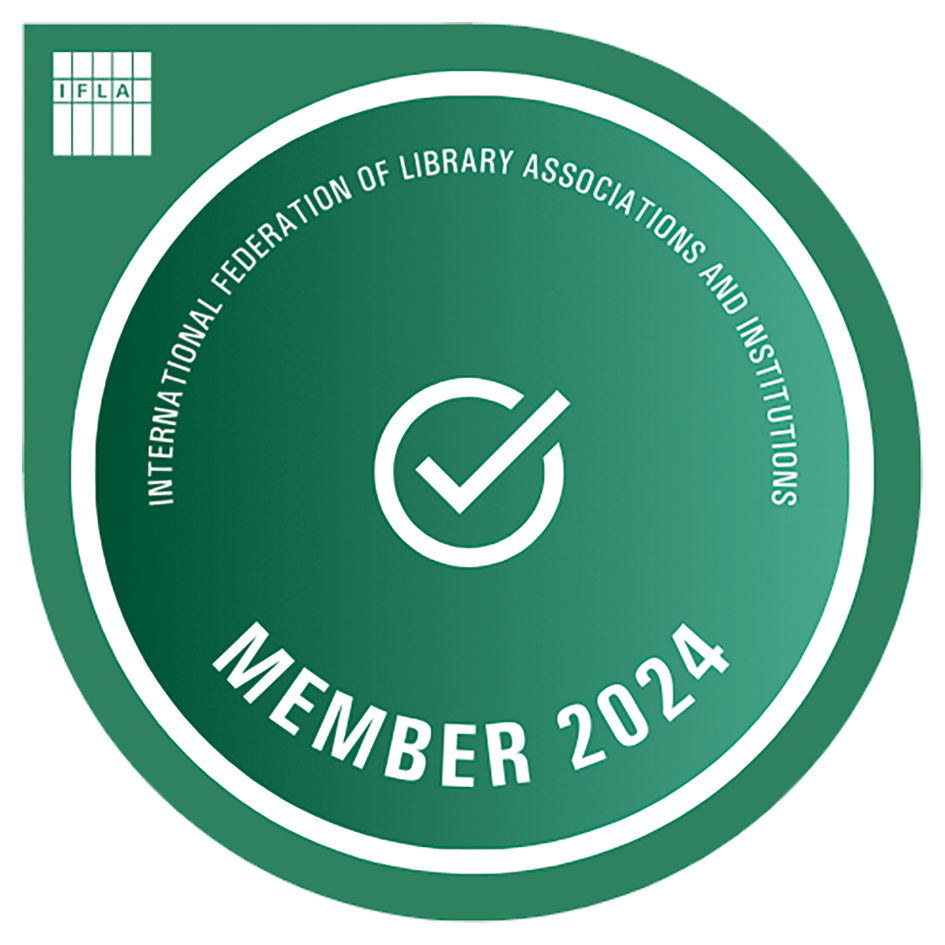News & Events
- 2021-09-17
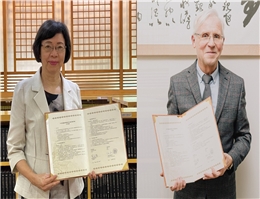
National Central Library Director-General Shu-hsien Tseng and the Collège de France Head Administrator Thomas Römer signed a collaboration agreement regarding establishing a Taiwan Resource Center for Chinese Studies (TRCCS). Since 2012 when NCL began this project, a total of 36 such agreements have been signed. Director-General Tseng stated, with the pandemic ravaging countries around the globe, expanding international exchange and collaboration is not an easy feat. NCL has continued to proactively overcome these challenges and promote the expansion of Taiwan Resource Center for Chinese Studies globally.
The Collège de France is an institution of higher learning and research institute located in Paris, France. It was established in the 16th century. From that time on, it has stuck fast to principles of academic freedom and independence. It has strived for education equality. The lectures and seminars the college holds not only include the most advanced knowledge in various fields, but also are free for anyone to attend. There is no need to register beforehand. Each year it also invites many foreign scholars to give a series of lectures. The online lecture courses are especially popular. These have had a profound effect on the dissemination of knowledge and expanding influence worldwide.
The Collège of France has an Institute of Advanced Chinese Studies Library, under the Far East Libraries, which is one of the most top-notch Chinese studies libraries in Europe with over 250,000 volumes and 1,300 journals. Included in this collection are many and rare ancient Chinese book. The most unique aspect of their rare books collection is the heavy emphasis on traditional literature. The catalog records for these books have already been given to NCL for inclusion in Union Catalog of Chinese Rare Books Database. Through working with NCL to set up a Taiwan Resource Center for Chinese Studies, in the future the Collège de France will be able to more easily acquire top quality Chinese books and journals published in Taiwan. These will greatly benefit researchers of the faculty, as well as lecturers and students in Paris in terms of Chinese literature and cross-cultural research and teaching.
Director-General Tseng explained that in 2011, the government began establishing Taiwan Academies overseas in an effort to promote Chinese culture with Taiwan characteristics to the world. Starting with Taiwan’s unique features and advantages, the government used its advanced information systems and digital technology to synthesize Chinese instructional materials and promote traditional characters, Taiwan research, and Chinese studies, and Taiwan’s multiculturalism. These aspects were important mediums for Taiwan’s culture to interact with the international community. It also became a platform for the international community to come to know Taiwan’s overall success in development. Since NCL’s Center for Chinese Studies had accrued many years of rich service and success in international Chinese studies, it received the approval of the Executive Yuan’s Taiwan Academy Promotion Group. It was recommended that the Ministry of Education has NCL join the promotion group for the Taiwan Academy. In the Taiwan Academy located in New York, Los Angeles, and Houston, a Resource Point was set up as a way to engage in exchange, as well as to show forth research achievements in Taiwan studies and Chinese studies. Each year, a Taiwan Lecture for Chinese Studies and an Ancient Literature Exhibition are held in the U.S. These are used to promote Taiwan’s soft power.
-
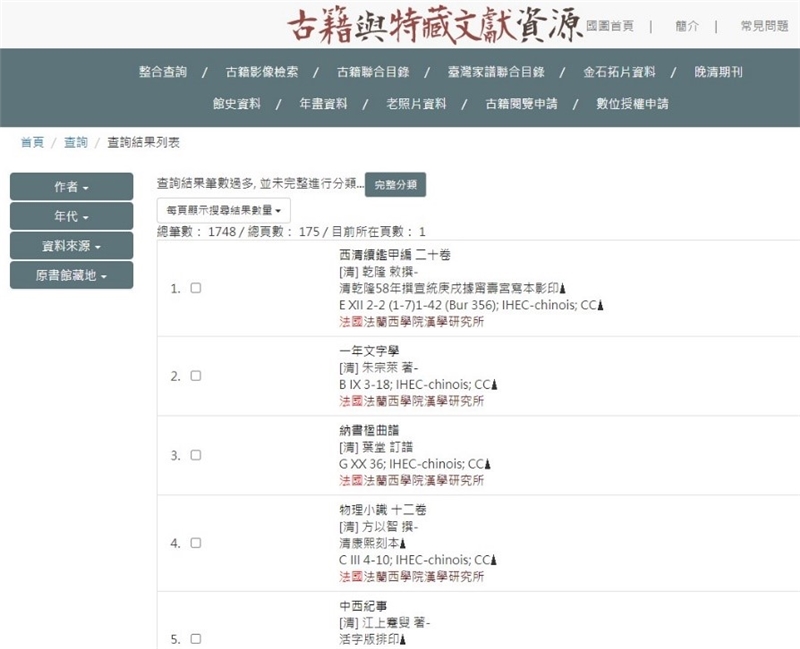 04A total of 1,748 catalog records of Chinese rare books in the Collège de France’s holdings
04A total of 1,748 catalog records of Chinese rare books in the Collège de France’s holdings -
 NCL Director-General Tseng holds the collaboration agreement
NCL Director-General Tseng holds the collaboration agreement -
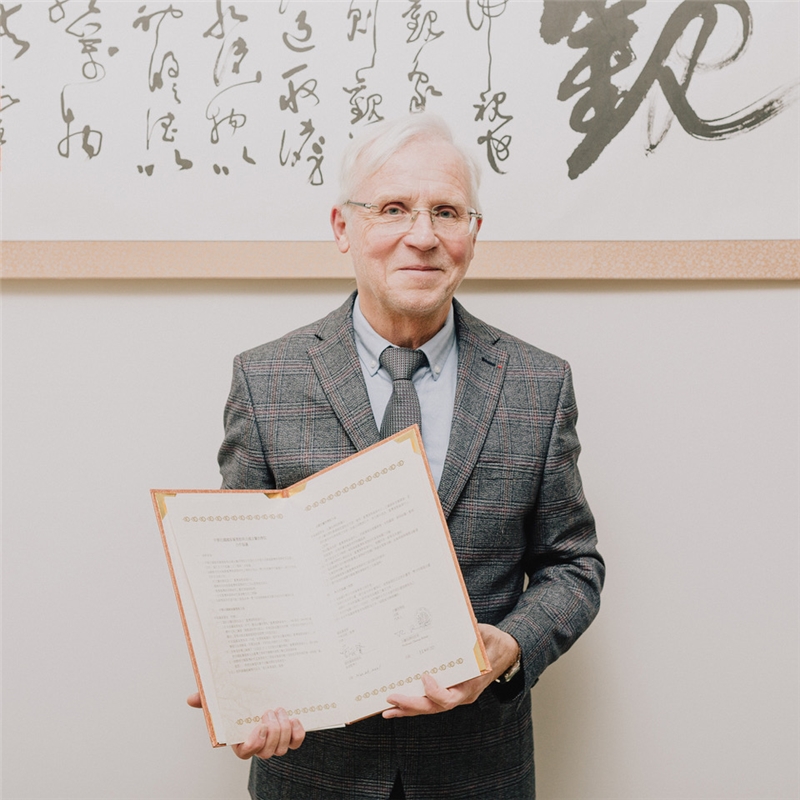 The Collège de France Head Administrator Thomas Römer holds the collaboration agreement of the TRCCS project
The Collège de France Head Administrator Thomas Römer holds the collaboration agreement of the TRCCS project -
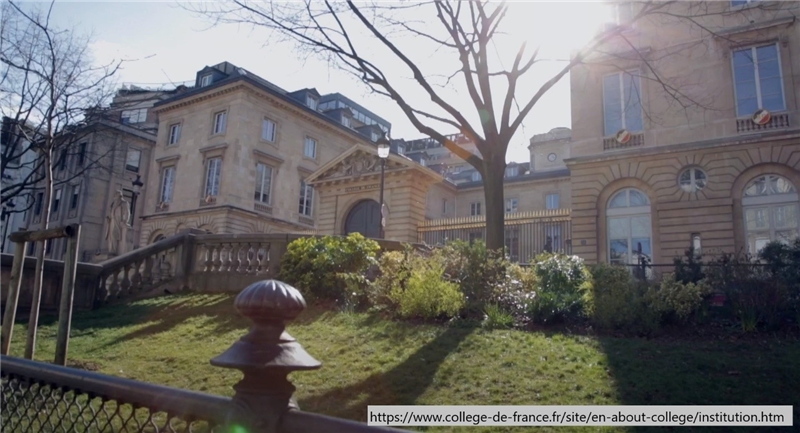 A view of the Collège de France’s campus
A view of the Collège de France’s campus -
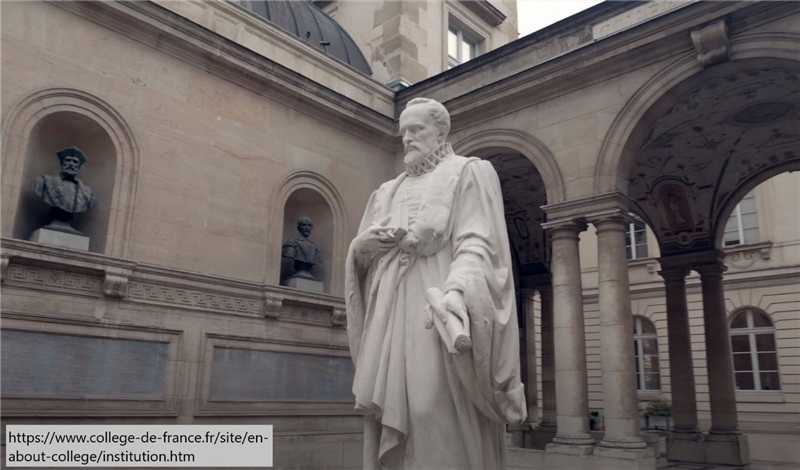 The statue of Guillaume Budé at the Collège de France
The statue of Guillaume Budé at the Collège de France -
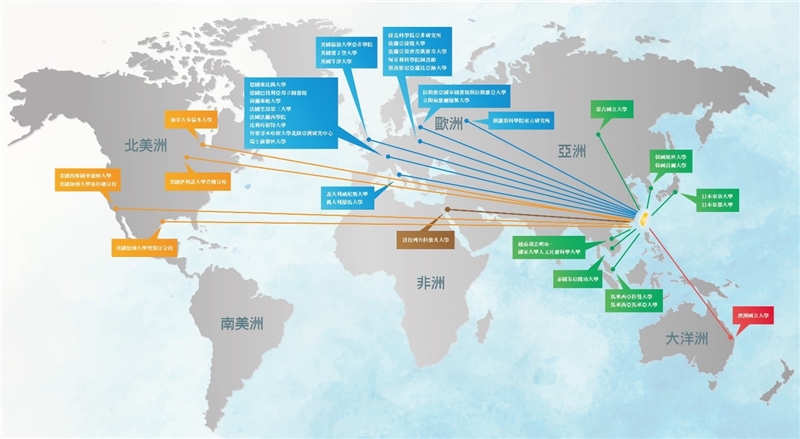 A global distribution map of TRCCSs
A global distribution map of TRCCSs -
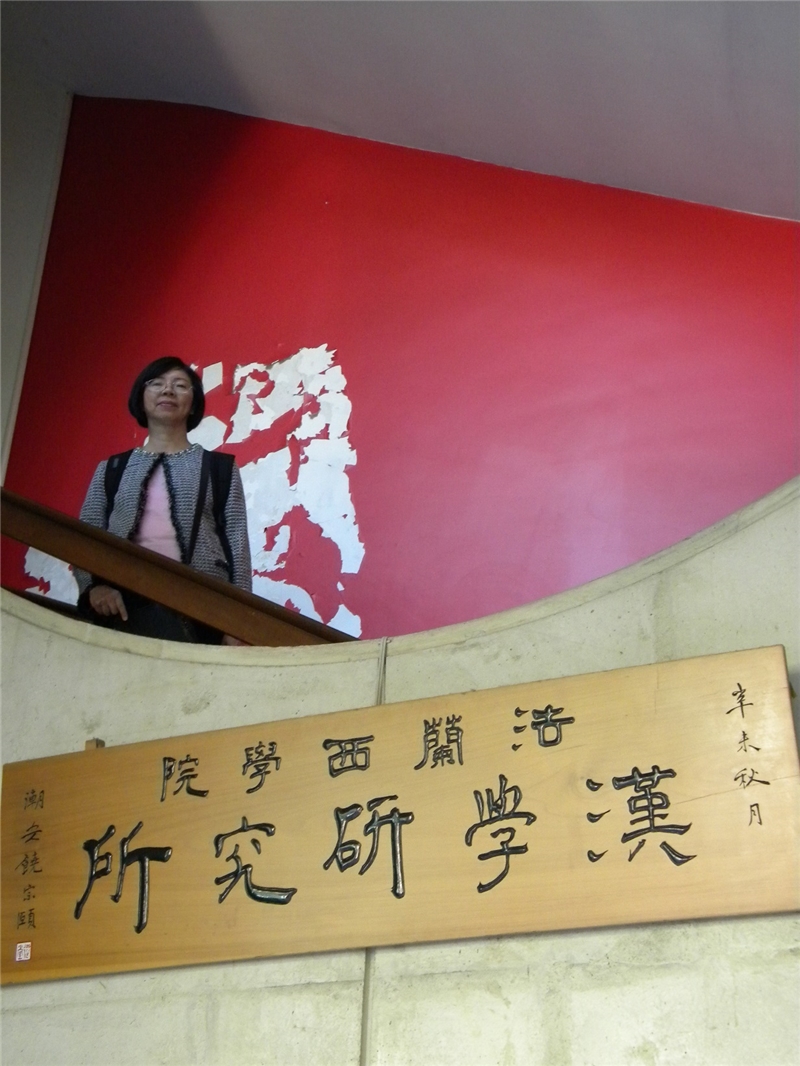 Director-General Tseng visited the Collège de France to discuss the establishment of a TRCCS there
Director-General Tseng visited the Collège de France to discuss the establishment of a TRCCS there -
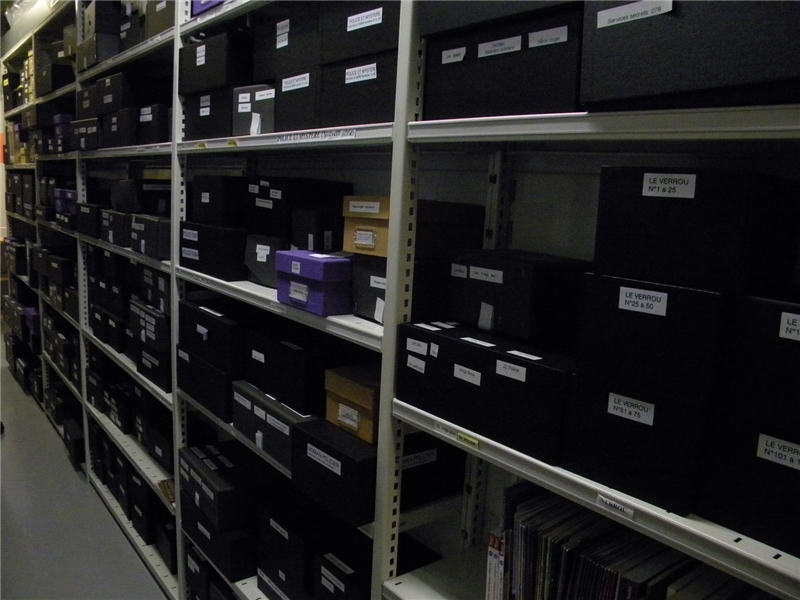 the library displayed its collection of Chinese rare books
the library displayed its collection of Chinese rare books -
 the library displayed its collection of Chinese rare books
the library displayed its collection of Chinese rare books -
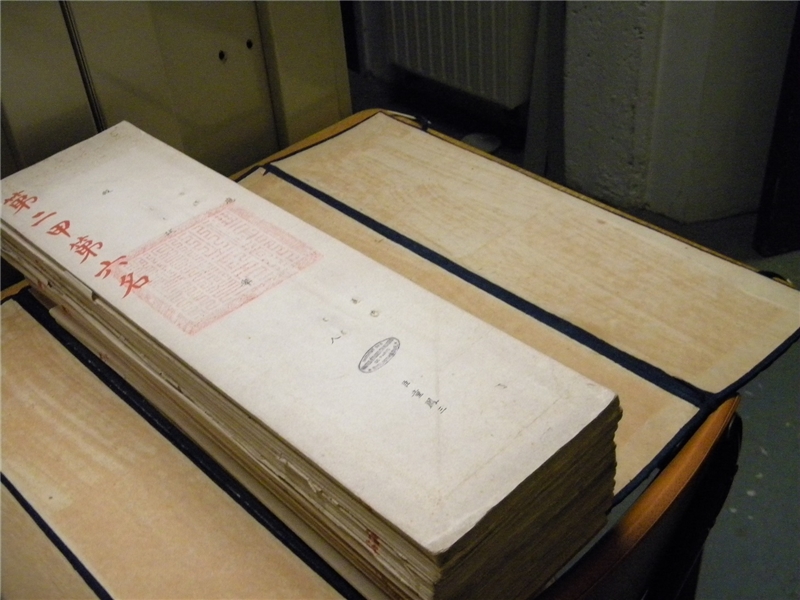 the library displayed its collection of Chinese rare books
the library displayed its collection of Chinese rare books -
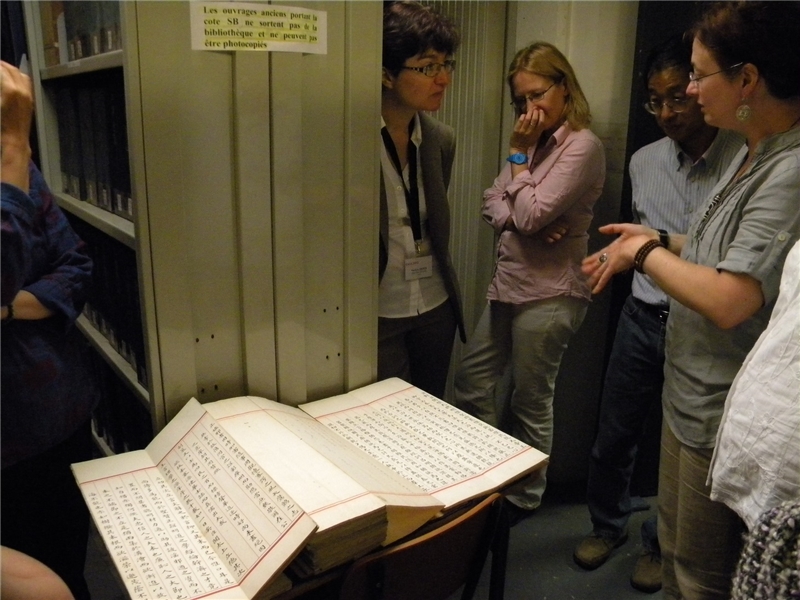 the library displayed its collection of Chinese rare books
the library displayed its collection of Chinese rare books -
 the library displayed its collection of Chinese rare books
the library displayed its collection of Chinese rare books
- Resources
- NEWS & Events
- ABOUT NCL
- International Cooperation and Exchange
- Services






